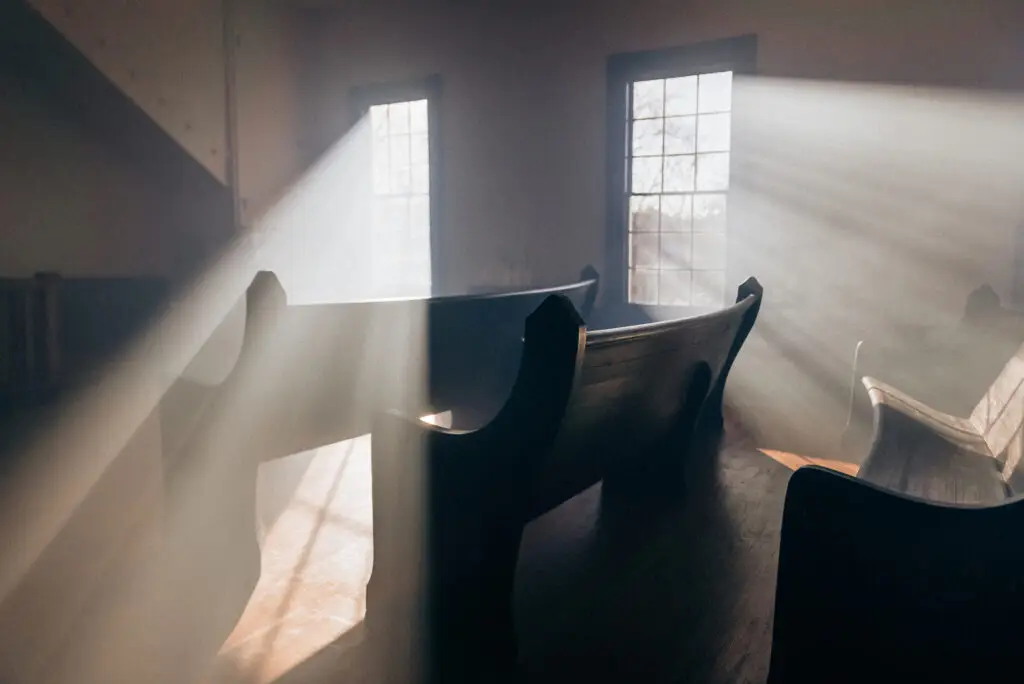*This post is the second in a series examining the transfer of the sabbath day. The previous post can be found here.
Moving on to the New Testament, the same pattern remains: the change of day that was foreshadowed in the Old Testament is actualized in the resurrection of our Lord, and it is confirmed by apostolic example. The legitimacy of the change of day is shown by: (1) the honor conferred to the day by the Lord; (2) by the outpouring of the Holy Spirit on the day of Pentecost; (3) by the practice of the apostles; and (4) by the title given to the day (i.e., “Lord’s Day”).[1]
The first reason to affirm the transfer of the day of Sabbath observance from Saturday to Sunday is because of the honor given to it by the Lord. As a first example it should be noted that every recorded post-resurrection appearance of Jesus to the disciples happens on Sunday.[2] Jesus appears on the evening of the resurrection day (e.g., Jn 20:19). Likewise, eight days later (counting inclusively, as the Jews did) Jesus came to the disciples again on a Sunday (Jn 20:26). Jesus’s recorded appearances to the disciples appear on Sunday.
A second reason to affirm the transfer of day from Saturday to Sunday is the outpouring of the Holy Spirit at Pentecost. This event was foreshadowed by the giving of the law fifty days after the Exodus:
Here [in Pentecost] we have the explanation of the mystery in the Old Testament of the fiftieth day…On the fiftieth day after the departure from Egypt, the law was delivered from Mount Sinai, which, corresponding with the first day of the week, was 1500 years afterwards fulfilled on that day. That the law was delivered, accompanied with thunderings and lightings, and now, on the corresponding day, came “a sound from heaven, as a mighty rushing wind,” and “cloven tongues, like as of fire” sat upon each of the disciples.[3]
The striking similarities between Pentecost and the giving of the law in Exodus affirm: “the coming of the promised Comforter, being thus vouchsafed on the first day of the week, confirmed the newly instituted season,” that is, the new Sabbath pattern for the new people of God: Lord’s Day worship.[4]
A third reason to affirm the change of day, and perhaps the most important, is the apostolic example found in the New Testament. While the New Testament does not expressly command weekly observance of the Lord’s Day, there does exist much apostolic precedent; Haldane affirms: “The duty of sanctifying the first day of the week is taught in the New Testament, not by direct precept, but in a way of approved example or reference, in which several other institutions are enjoined.”[5] Indeed, because there were details about the administration of the church which where given directly to the apostles and not expressed by the Lord during his earthly ministry (e.g., administration of the sacraments, the ordering of worship), apostolic teaching and example retains the force of divine command (e.g., 1 Cor 14:37).[6]
Whether the transfer of Saturday to Sunday as the day of worship came from direct command of Jesus to the apostles or by the leading of the Holy Spirit, what is clear is that the apostolic-era church did gather on Sundays.[7] One passage indicating Lord’s Day worship is found in 1 Corinthians where Paul telling the church at Corinth to make a collection “on the first day of every week,” (16:2). However, this injunction was not limited to just the Corinthian church, for Paul explains, “as I directed the church of Galatia, so you also are to do” (16:1). This passage assumes that the church would be meeting regularly on the Lord’s Day, a command that Paul taught in all the churches (cf. 1 Cor 4:17; 7:17). Another passage indicating Lord’s Day worship is Acts 20:7a: “On the first day of the week, when we were gathered together to break bread.”[8] The breaking of bread reference is often seen as a reference to the partaking of the Lord’s Supper. As one (anti-sabbatarian) notes, that Luke specifies the day is significant:
We are faced with the conclusion that Luke’s specification of the day of the week in Acts 20:7 probably should not be relegated to the category of irrelevant personal reminiscence. It represents a state in the growing consciousness of, and ecclesiastical importance of, the “first day of the week.” The brevity of Luke’s notice would suggest that he considered such meetings to be uncontroversial and to require no further explanation, from which we may infer that they were relatively widespread and regular.[9]
Thus, the transfer of Saturday to Sunday was set at early as pre-Pentecost and was affirmed by apostolic example.
In the next post, I will conclude this series by examining the honorific title given to the new covenant day of worship: the Lord’s day.
[1] These arguments are adapted from: Robert Haldane, Sanctification of the Sabbath: The Permanent Obligation to Observe the Sabbath Or Lord’s Day (Edinburgh: William Whyte & Co., 1842), 388–96.
[2] Lane Keister, “The Sabbath Day and Recreations on the Sabbath: An Examination of the Sabbath and the Biblical Basis for the ‘No Recreation’ Clause in Westminster Confession of Faith 21.8 and Westminster Larger Catechism 117,” Confessional Presbyterian 5 (January 1, 2009): 235.
[3] Haldane, Sanctification of the Sabbath, 389. Haldane explains other connections: “The day of Pentecost, too, was the fiftieth day from the resurrection of Jesus Christ when he ‘became the first fruits of them that slept,’ and the day of the first fruits of the Christian Church. The fiftieth year of jubilee, when every man returned into his own possession, which he had sold or forfeited, also corresponded with that fiftieth day, the day of Pentecost, on which so remarkable a proof was given that the price of the redemption of Christ’s people had been paid, and that for them he had entered into the possession of his and their eternal inheritance.” Ibid., 389–90.
[4] Ibid., 390. It is also significant that “not merely the Apostles, but all the disciples…were in one accord—as being the day of their stated meeting—in one place.” Ibid.
[5] Ibid., 387.
[6] This argument drawn principally from: Benjamin Keach, The Jewish Sabbath Abrogated, Or, The Saturday Sabbatarians Confuted in Two Parts: First, Proving the Abrogation of the Old Seventh-Day Sabbath: Secondly, That the Lord’s-Day Is of Divine Appointment: Containing Several Sermons Newly Preach’d upon a Special Occasion, Wherein Are Many New Arguments Not Found in Former Authors, Early English Books, 1641-1700 / 280:06 (London : Printed and sold by John Marshall …, 1700., 1700), 176–279, http://gateway.proquest.com .ezproxy.sbts.edu/ openurl?=ctx_ver=Z39.88-2003&res_id=xri:eebo&rft_id =xri:eebo:citation:12417506 Keach argues that there are many things comprehended in the great commission which are not expressed, including the day of worship: Sunday. Keach argues that Christ probably gave this teaching, among others, during His 40 days before His ascension. Ibid., 176–80. See also: ; Iain H. Murray, Rest In God: A Calamity in Contemporary Christianity (Carlisle, PA: Banner of Truth, 2010), 18–23; Glen Knecht, The Day God Made (Carlisle, PA: Banner of Truth Trust, 2003), 62–66.
[7] Keach offers three reasons to believe that the transfer was taught directly to the Apostles by Jesus. (1) “Consider Jesus Christ, Son of God, as Mediator, is the only Head, Sovereign Lord, and Lawgiver to his Church; and therefore it may seem strange, that the special Day or Time of Gospel-worship in his own Kingdom-state should not be given forth by himself. (2) “Now no doubt but during these 40 days [between the resurrection and the ascension], he fully settled all things appertaining to his Spiritual Kingdom, and instructed them in all matters they should both do and teach. And can any rationally judg [sic.] that he did not then command them which day in seven he would have observed as a Day of Rest and Solemn Worship?” And (3) “Consider, that from the day of his ascension into Heaven, till the day of Pentecost, there were but ten days, during which we do not read they had any special general Assembly for Religious Worship, tho on the two first days some were together, and on both those days he appeared to them. And remarkable it is, that there were two Jewish Sabbath-days between his Ascension and the day of their first general solemn meeting. Now had not the old Sabbath been gone, certainly they had assembled on both those days: but no doubt our Lord had told them on what day they should first meet together, in expectation of the Gift and Promise of the Father; which hay he purposed to ratify as the only Day of Gospel-Worship, by a marvelous effusion of the Spirit. To me nothing deserves more to be observ’d than this, viz. on what day of the week the first general Gospel-Assembly was held, after our Lord’s Resurrection, and just upon (or soon after) his Ascension: for no doubt that the day which Christ did settle in his Gospel-Church. And that they were bit to be altogether on this day, and to wait till it was come, seems plainly implyed [sic.] in the very words of the Text, Acts 2.1 ‘And when the day of Pentecost was fully come;’ fully come, doth not that denote they waited for it?” Keach, The Jewish Sabbath Abrogated, 182–85. While his mildly speculative arguments are interesting, it does not matter whether Christ gave the commands directly or if the Apostles, under the inspiration of the Holy Spirit, gave the commands to the church; either way, the pattern immediately and universally shifts by divine command from Saturday to Sunday worship.
[8] For a defense of this passage speaking of Sunday evening, not Saturday evening, see: Max Turner, “The Sabbath, Sunday, and the Law in Luke/Acts,” in From Sabbath To Lord’s Day, ed. D. A. Carson (Eugene, OR: Wipf & Stock, 1999), 130.
[9] Ibid., 132.































